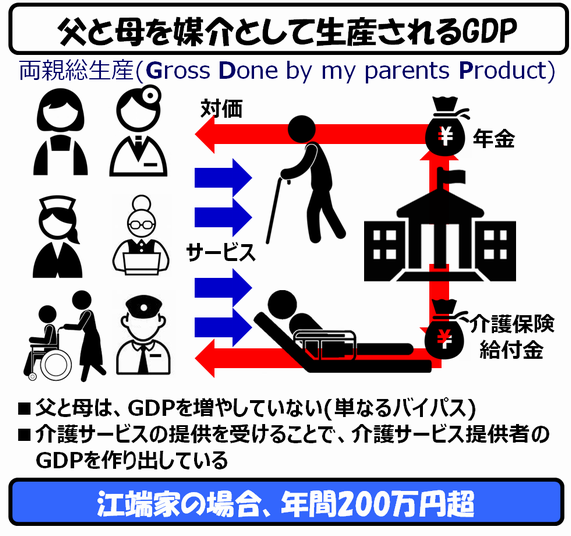―― あの若いころの、無駄に高いフットワーク(しかも命中率は恐しく低い)は、一体何だったのだろう?
今日の目標としていたコーディングの内容が、昔作ったテストプログラムを流用できることが分かって、喜んでいました。
I was pleased to find that my coding goal for the day was to be able to divert a test program I had created long ago.
自由時間ができたので、別の実験システムのプログラムを書いていました。
I had some free time, so I was coding another experimental system.
そういう私を、姉は「職人気質の生き方」といい、次女は「過労死予備軍」といい、嫁さんは「幸せな人生」といいます。
My sister calls me a "craftsman's way of life," my second daughter calls me a "reserve army for death from overwork," and my wife calls me a "happy life.
私自身は、普通に「凡庸な人生」で良いと思っていますが。
I would normally be fine with a "mediocre life."
でも、これは、私だけが悪いのではなく、世界も悪い。
But this is not only my fault but the world's too.
映画館に行くくらいなら、アマプラかネトフリの方がいい(仕事しながら映画も見れる)し、スポーツ観戦するなら、テレビが最も選手のアングルに近づけて、しかも解説付きです。
If you'd instead go to the movie theater, Amapura or Netflix are better (and you can watch movies while you work), and if you want to watch sports, TV is the best way to get the best angle on the players; it has commentary.
と、言いつつ、私は、行動することの重要性を、よく分かっているつもりです。
I know the importance of taking action.
-----
世界を放浪した20代は、私に、他国の政府とその国の国民は別物であることや、選択を間違えれば、簡単に死に至るシーンがあることを教えてくれました。30代は、外国の多国籍チームで天国と地獄の両方を体験しました。
My twenties, wandering the world, taught me that the government of another country and its people are different and that a wrong choice can easily lead to a deadly scene. my thirties, experiencing both heaven and hell in a foreign multinational team
40代からは、「諦めること」も「最適戦略となりえる」ということが分かってきて、今は「面倒ごとからは、可能な限り逃げる」という生き方で固定しております。
Since my 40s, I have come to realize that "giving up" can also be an "optimal strategy," and now I am fixed on a way of life in which I "run away from troublesome things as much as possible.
つまるところ、今、私は、過去の「行動」で得られた資産(貯金)を、ブログやらエッセイやらコーディングで消費しているシニアです。
I am now a senior citizen consuming assets (savings) from past "actions" with blogs, essays, and coding.
―― あの若いころの、無駄に高いフットワーク(しかも命中率は恐しく低い)は、一体何だったのだろう?
-- What was that high footwork in his youth (with a low hit rate)?
と考えることがあります。
I sometimes think about this.
あのフットワークには、色々な意味があると思いますが、その一つが『「恋愛」と「結婚」のエンジン』だったのだろう、と考えるとしっくり決ます。
The footwork has many meanings, and it makes sense to think that one of them would have been 'the engine of "love" and "marriage."'
現在、10年前の私の予想を上まわる速度で、非婚率が高くなっています。しかし、「恋愛」と「結婚」を論理的に考えたら、非婚の選択は最適戦略です。
Today, the rate of nonmarriage is increasing at a faster rate than I expected ten years ago. However, if you think logically about "love" and "marriage," choosing nonmarriage is the optimal strategy.
運動エネルギーの無駄に高い若い頃でないと、「恋愛」や「結婚」という非合理な行動選択をするのは、難しいです。
It is difficult to make the irrational behavioral choice of "love" or "marriage" unless you are young when kinetic energy is wasted.
この2つに関してだけは『考えたら負け』という面は、確かにあると思うのです。
There is undoubtedly an aspect of 'if you think about it, you lose' that only concerns these two things.
と書きつつ、なんでも「恋愛」「結婚」の話に結びつけるのは、私の悪いクセかもしれません。
閑話休題
Now, let's return to the main subject
-----
医師である和田秀樹さんのコラムに、『大事なのは「長生き」ではなく、「長生きして何がしたいか?」』が記載されています。
In a column by psychiatrist Hideki Wada, they said, "What is important is not 'how long I live,' but 'what do I want to do with my long life?
これは、正論なのですが、これは、私には当て嵌まらないのでです。
This column is a good argument but does not apply to me.
-----
私、これまで、「自分のやりたことが"分からない"若者」を、擁護する発言を繰り返してきました。
I have repeatedly defended young people who "don't know" what they want to do.
『自分のやりたいことが分からない』という方は、多分、ご自分のことを「不幸な人間」と思っているかもしれませんが ―― 『意外に、それは最高の人生なのかもしれないですよ』ということを、お伝えしたくて。
しかし、「自分のやりたことが"分からない"高齢者」について、私は、これまで考えてこなかったことに気がつきました。
However, I realized I had not considered older people who "don't know" what they want to do.
もっとズバリ言うのであれば、「自分のやりたことが"ない"高齢者」は、どのように余生を生きれば良いのかが、分からない。
To put it more bluntly, older people who "don't have anything they want to do" do not know how to live the rest of their lives.
この命題は、かなり怖い問題を含んでいます。
This proposition involves a rather scary problem.
「自分のやりたことが"分からない"若者」は、分からなくても、労働力という価値製造装置になることはできます。
Young people who "don't know what they want to do" can become a value-producing device for the labor force even if they don't know what they want to do.
比して、「自分のやりたことが"ない"高齢者」は、労働力になりにくい。
In contrast, older people who "don't have anything they want to do" are less likely to be in labor.
ただし、この問題については、私は『高齢者が、被介護者になることで、日本のGDPを支える貴重なアセット(資産)になる』というロジックで対抗できることを示しています。
However, I have shown the logic that 'cared older people" become a valuable asset (asset) that supports Japan's GDP.
ですので、未来の私は、『堂々と被介護者になって、我が国の経済に貢献する』と言い切るので、そっちの方は片付いています。
So, in the future, I will say, 'I will be a caretaker with dignity and contribute to our country's economy,' so that side is taken care of.
-----
問題は、私自身のことです。私はこれを解決しなければなりません。
The problem is myself. I have to solve this.
つまり、「自分のやりたことが"分からない"高齢者である私」や、「自分のやりたことが"ない"高齢者である私」を、どのように私の中(×社会の中)に位置付けていくか、です。
In other words, how to position "I, an elderly person who does not know what I want to do" and "I, an elderly person who does not have what I want to do" in my mind (x society).
『「自分のやりたことが"分からない"高齢者である私」「自分のやりたことが"ない"高齢者である私」は、それ故に、◯◯◯◯という意義がある』という、"◯◯◯◯"の部分を自力で見つける必要がある、と思っています。
I believe that "I am an elderly person who does not know what I want to do" and "I am an elderly person who does not have what I want to do"; therefore, I need to find the "X" part by myself, which is the significance of "X."
しかし、これは、なかなかに厳しい命題です。
However, this is a very tough proposition.
なぜなら、自分の体力も能力も低下し、パフォーマンスやフットワークが縮退し続ける、という制約条件下で、私は、この命題を見つけださなければならないからです。
Because I have to find this proposition under the constraining conditions, my strength and ability are declining, and my performance and footwork continue to degenerate.
さらに、私の場合、「人間嫌い」というやっかいな属性もあります。
In addition, I also have the troublesome attribute of being a misanthrope.
そんなものは見つけられなかった ―― そういうオチになる公算は高いのですが、まあ、がんばってみます。
I couldn't find such a thing -- that's the most likely outcome, but I'll try my best.
